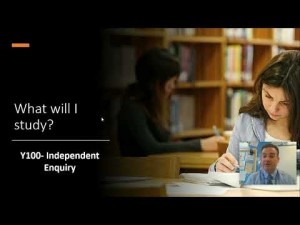McAuley Sixth Form » Subjects » History
History
New Specification What does this mean?
- History 22.
- Class.
- Sixth Form Students visit Auschwitz.
- Sixth Form students view artifacts; childrens shoes left by the Nazis at Auschwitz.
- Holocaust Links. A Holocaust Survivor recounts his childhood experiences to sixth form students.
- The Berlin Trip 2002 - present.
Why choose OCR A Level History (A)?
Studying the past will help you make sense of the present. In addition, the study of History enables students to develop skills which have considerable market value. Universities and employers appreciate that History Is academically demanding and rigorous and will give you certain Key Skills which can be applied to a variety of situations. You will learn to recognise what motivates people, to gather and read different kinds of information, to check it for bias and propaganda and communicate and express your ideas clearly.
Back to topWhat will I learn in Year 12 and how will it be assessed?
Modules 1,2 and 3 assessed by examination
Module 4 coursework
Unit 1: Britain 1930–1997 (Enquiry topic Winston Churchill 1929-51)
Assessment: 30 marks, 1 hour paper.
15% of total A level
Unit 2: Democracy and Dictatorships in Germany 1919–1963
Assessment: 30 marks, 1 hour paper.
15% of total A level
This is a new specification subject. The school’s policy is that students enrolling onto new specification courses will not be entered for external AS examinations at the end of Year 12. Please visit the FAQs for more information on new specifications, their UCAS tariff points and the ‘decoupling’ of AS/A2 grades.
Back to topWhat will I learn in Year 13 and how will it be assessed?
Unit 3: Popular Culture and the Witchcraze of the 16th and 17th Centuries
Assessment: 80 marks, 2 hour 30 mins paper
40% of total A level
Unit 4: Topic - based essay
Assessment: 40 marks, 3000–4000 word essay Non exam assessment
20% of total A level
How will I learn?
You will learn through opportunities to:
- Personally research topics
- Use source – based materials including TV and film
- Use field visits including a trip to Berlin
- Listen to personal testimonies of people involved with the events under investigation, including Holocaust survivors
- Use up to date ICT packages/programs to develop research and presentation/revision materials.
Related Degrees
Journalism, Archaeology, Journalism, Law.
Back to topRelated Careers
History is a good qualification for budding journalists, TV researchers, lawyers, police officers, market researchers, social workers, teachers, businessmen and women and managers in a variety of fields.
Back to topFurther Course Information
Students have the opportunity to participate in a residential trip to Berlin, Germany. In conjunction with the Film Studies Departments, the department runs a week-long trip to the capital of Germany. Whilst there we visit the Jewish Museum, Sachsenhausen Concentration Camp and the German Parliament - The Reichstag. The trip is designed to enhance History at A level as two of the A level units examine German History. We also visit the Holocaust Centre in North Nottinghamshire and student conferences at various universities. The History department maintain very close links with the Holocaust Educational Trust and students in year 12 can apply to participate in the Lessons from Auschwitz course each year.
Links to the Holocaust Educational Trust:
Mr Giannini is an educator for the Holocaust Educational Trust and the dept has close links with the organisation, sending six of our A level History students each year to the Lessons from Auschwitz programme, as well as inviting survivors into school to address large groups.
Back to top
